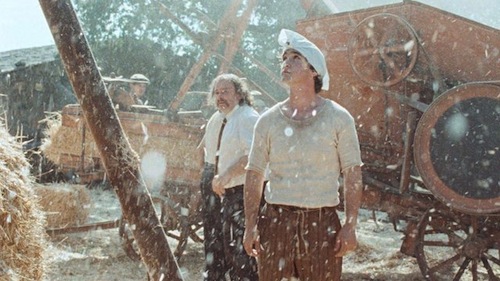Directed by Asghar Farhadi
Country: Spain / France / Italy
The work of some distinguished directors loses the charm and often the focus when they operate in a different cultural milieu. This syndrome seems to have caught Iranian master Asghar Farhadi, who gave us gems like About Elly (2009), A Separation (2011), and The Salesman (2016). Sad to say he stains his filmography with Nobody Knows, a fictional thriller set in Spain that unfolds monotonously and only sporadically piques our interest. Orienting a luxurious cast that includes Javier Bardem, Penelope Cruz and Ricardo Darin, Farhadi failed to provide startles and thrills, relying solely on the dramatic side of things to impress. But even that factor was disastrous as he tiresomely attempts to suggest connections between the past and the present.
The film starts by capturing some newspaper clippings that reveal the disappearance of a little girl named Carmen. When Laura (Cruz) arrives at her small, picturesque hometown with their three children to attend her sister’s wedding, she couldn’t imagine she had been already chosen as an indirect target for something similar. In recent years, she has been living in Buenos Aires, where her architect husband, Alejandro (Darin), remained due to work commitments.
The wedding’s festivities suddenly turn into a river of tears when Laura’s teen daughter, Irene (Carla Campra), disappears mysteriously. She had been kidnapped while resting in her room and the ransom is 30 thousand euros. Obviously, there was a mole at the party and the kidnappers can be either family or friends. Jorge (José Ángel Egido ), a retired policeman who acts as he knows all the answers, studies possible motives and tries to find a logic for the puzzle.
All the same, the only one with the financial means to resolve the imbroglio is Paco (Bardem), Laura’s former lover, who is well established as a local vineyard owner. Intriguingly, Paco’s wife, Bea (Bárbara Lennie), receives the same warnings from the kidnappers. Secrets are unveiled slowly and unsavorily, while the drama becomes a disorganized spiral of affective manipulations.
Farhadi keeps on working family themes, but with a voice that lacks articulation. He brings a bit of Almodovar during the colorful party and the dramatic flair of Susanne Bier, but everything is inconsistently pasted with a melodramatic television air. There’s little to differentiate this film from other generic drama-thrillers out there, and even if the images shine bright, they were not enough to make Everybody Knows glittering like gold. To tell the truth, this was more of a pale experience that puts Farhadi under pressure for his next move.





















